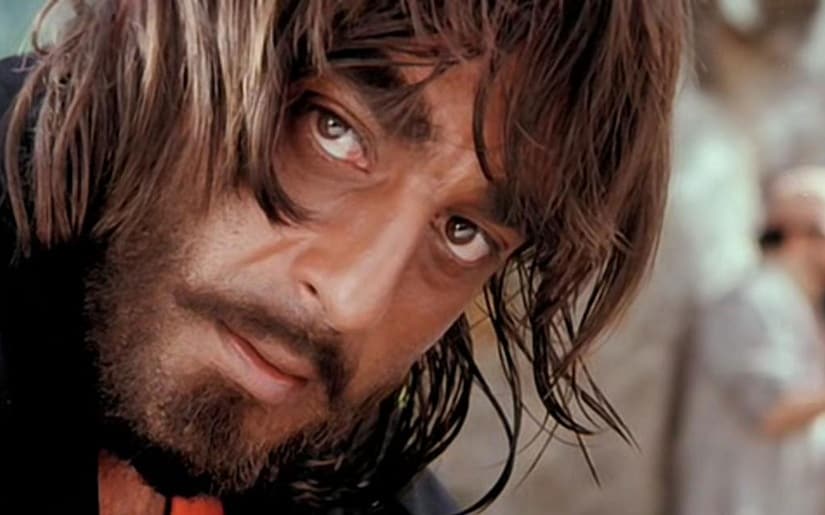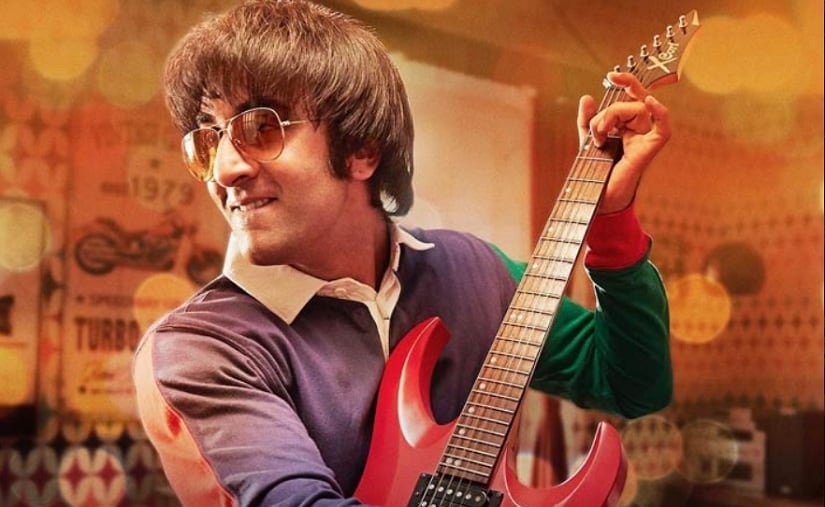Subhash Ghai’s Khalnayak is not a great film, by any stretch of imagination. When released in 1993, it was dubbed an average film by critics, which was a shocker to many as the director’s previous three ventures were Saudagar, Ram Lakhan and Karma – all certified blockbusters. It was also the first time that Ghai’s directorial skills backfired in using a much-loved, tried and tested Bollywood formula. Those who followed Hindi cinema at the time would remember that the film tried to pack in too many things and eventfully lost out on audiences’ attention. But the events associated with the film when it had hit theatres during the monsoon of 1993 makes people still remember the film. Khalnayak was, after all, the first time a film portrayed a villain as hero. [caption id=“attachment_4902391” align=“alignnone” width=“825”]  Sanjay Dutt in Khalnayak.[/caption] Khalnayak completes 25 years on 6 August, and with Sanju breaking all box office barriers since its release, the journey from ‘Ji Haan Mai Hu Khalnayak’ to ‘I am not a terrorist’ does holds some relevance. Khalnayak released in an era when terms like ‘studio-controlled’ and ‘corporate-financed’ were unknown to Bollywood and single producers were a powerful entity. It was only after the success of Khalnayak that the Dubai based mafia realised the goldmine potential of the tinsel town. It all began when a plan was hatched to target Ghai’s life, which was eventually thwarted by the then police commissioner of Mumbai. The film is still remembered for the colossal controversy it generated because of one song. When Choli Ke Peeche released, it was deemed obscene and owing to its innuendos, the song was banned on AIR and Doordarshan. The examining committee could pass the song only after the folk nature of the song was established by the film maker. It was also the first time that an unprecedented amount of money was paid to Ghai just to obtain the music rights. It is believed that Tips, the music company, had paid Ghai a sum of Rs. 1 crore for the song. The second best offer was from HMV, who wanted the rights for Rs. 40 lakhs. No brownie points for guessing that the money invested was worth every rupee. Ghai’s initial plan was to make Khalnayak a Hollywood film in association with Ashok Amritraj’s company but the lure to make it more commercial and mainstream — involving themes like patriotism, cop drama, mother-son saga — forced Ghai to stick to a familiar turf: Bollywoodisation. Till today, more than the songs or the stellar cast or the plot, Khalnayak is talked about as a film that blurred the reel and real life of actor Sanjay Dutt. Before Khalnayak, Sanjay Dutt had delivered some eight duds in succession and most believed that Sanjay Dutt was at the tethering end of his career. Ghai made most of his situation and forced Dutt to take a pay cut citing the expensive nature of the film as the foremost reason. The news of Sanjay Dutt’s involvement in the 93’ Mumbai blast broke at the time when he was filming a court scene for the film. It was ironic that the same scene was to be replicated several times in the coming years in his real life. Sanjay Dutt was in Mauritius shooting for the film and the moment he landed at Sahar Airport, he was arrested by the police. His arrest happened in April and the film was still four months shy from its release. The entire city was flooded with posters which proclaimed Mai Hu Khalnayak. It was a perfect case of truth being stranger than fiction and reel life imitating real life. [caption id=“attachment_4793461” align=“alignnone” width=“825”]  Ranbir Kapoor playing Sanjay Dutt in Sanju. Image from Twitte/@abramaali2[/caption] The makers of the film never in their wildest dream would have imagined that the cry of ‘Ji Haan Mai Hu Khalnayak’, the very basic spirit of the film, will prove to be an albatross around Sanjay’s neck in the days to come. 25 years later, a film on the life of Sanjay Dutt helmed by maverick film maker Rajkumar Hirani has wowed audiences, if its box office collection is anything to go by. The biggest cry of the film has been Ranbir Kapoor, as Sanjay Dutt, claiming that he’s not a terrorist. However, the film did receive much criticism for attemptiing to white-wash the actor’s reputation. The public trial of Sanjay Dutt, which began during the release of Khalnayak, is all set for a conclusion 25 years later with the release and blockbuster success of Sanju. After all films do have a lasting impact_._
Khalnayak completes 25 years on 6 August, and with Sanju breaking all box office barriers since its release, the journey from ‘Ji Haan Mai Hu Khalnayak’ to ‘I am not a terrorist’ does holds some relevance.
Advertisement
End of Article


)
)
)
)
)
)
)
)
)



